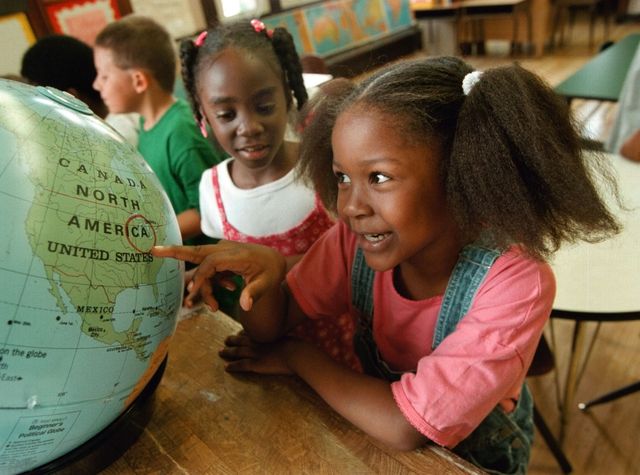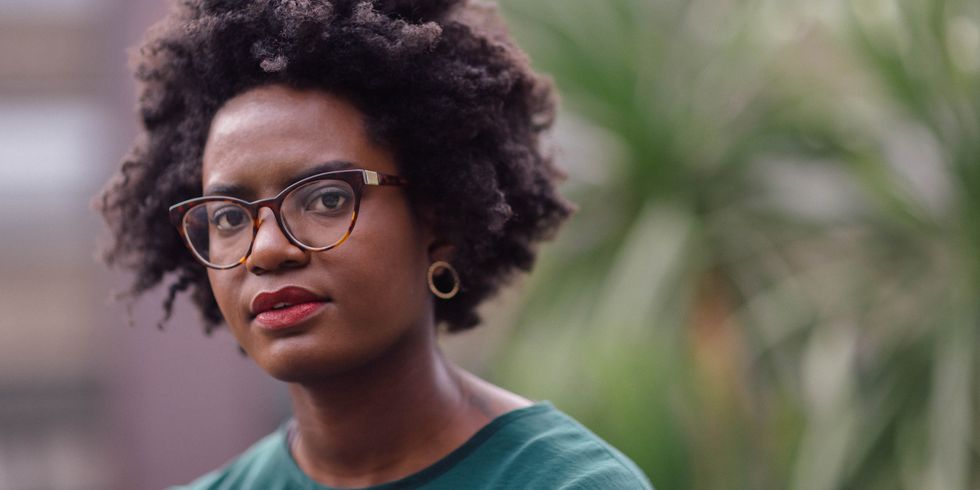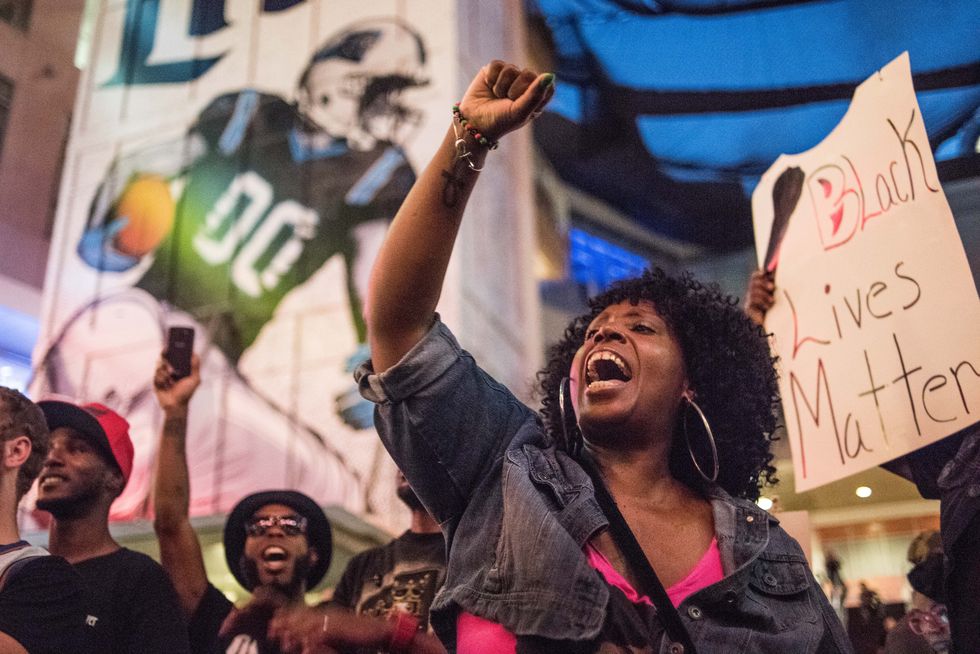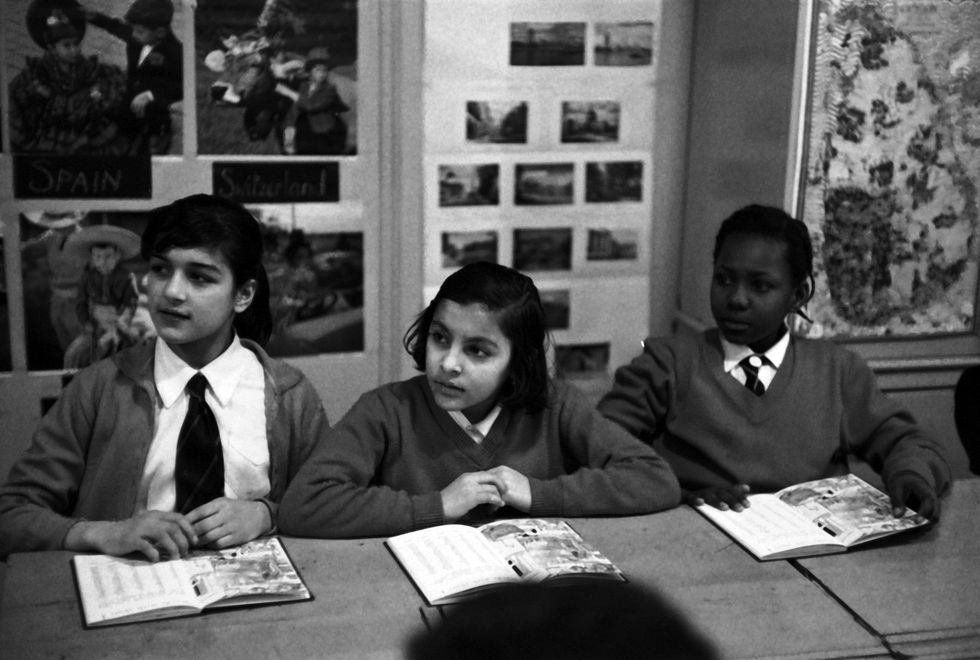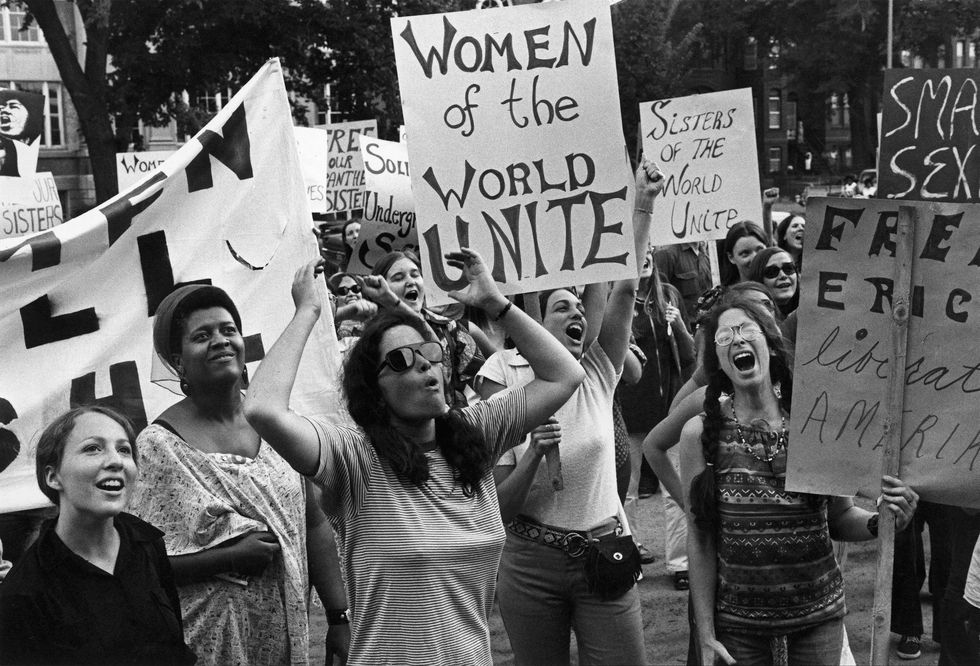- Racism is not just manifest in violent protests and police brutality.
- It can also be subtle and subconscious and - as a new study shows - it can start affecting children as young as 5-years-old.
- If it is allowed to persist, the study also shows, it can mean heavier penalties for black school children, as opposed to white peers, by teachers and caretakers.
- It can mean young black girls are sexualised younger and offered less nurturing and protection.
When we spoke to author Reni Eddo-Lodge, who wrote the book Why I'm No Longer Talking To White People About Race, she explained:
'For so long we have understood racism to be about interpersonal nastiness and spitting at people in the street. It can certainly manifest like that, but I [want] to talk about something much broader, about our systemic problem.'
A new study has revealed devastating statistics that support her statement that racism is systemic, deep-rooted and a product of history and environment that is so ingrained that it is often as unconscious as it is pervasive.
The investigation, from Georgetown Law Center , suggests that black girls are perceived as more mature and less innocent than white girls, when they are as young as 5-years-old.
In a piece of work entitled, 'Girlhood Interrupted', there is also the suggestion that young black boys were perceived as older too and assumed to be more 'guilty' than their white peers.
Arguably, this is the more damaging side of racism - for it is the racism that happens everywhere, subtly and pours forth from the mouths of people that claim to be otherwise inclusive and unprejudiced.
As Reni said, it is the sort of racism that stems from people that claim: 'I don't have a racist bone in my body.'
Other findings in this most recent document (which surveyed 325 adults of various ethnicities) are truly heartbreaking.
The participants in the survey were said to perceive that black girls need less nurturing, less protection, to be supported less, comforted less. They were seen to be more independent and to know more about adult topics including sex.
'Girlhood Interrupted' states:
These results are profound, with far-reaching implications. Our findings reveal a potential contributing factor to the disproportionate rates of punitive treatment in the education and juvenile justice systems for Black girls.
It goes on to suggest that these perceptions lead to a greater use of force and harsher penalties from adults.
This process is called 'adultification', which means they are not given the same leniency that white children are treated with, potentially harming their psychological development.
The study states, 'Ultimately, adultification is a form of dehumanisation, robbing black children of the very essence of what makes childhood distinct from all other developmental periods: innocence. '
The study posits that this racial bias has been handed down since slavery - a time when black children where treated as 'chattel' and black women were stereotyped to be hyper-sexualised and aggressive.
Notably, it is not just white adults that hold these internalised prejudices, as other races have been implicated in the document.
With videos of 15 year-old black girls being forcibly restrained by adult police officers surfacing on the internet and the most recent, shocking story of a pregnant black woman being fatally shot after reporting a burglary, it's difficult not to see this study within a wider context of racial discrimination in the US, and around the world.
Hopefully increasing awareness and more studies like this will translate into legislative and educational changes, but we women the world over might have to roll up our sleeves and get to work to ensure that it does.
Daisy Murray is the Digital Fashion Editor at ELLE UK, spotlighting emerging designers, sustainable shopping, and celebrity style. Since joining in 2016 as an editorial intern, Daisy has run the gamut of fashion journalism - interviewing Molly Goddard backstage at London Fashion Week, investigating the power of androgynous dressing and celebrating the joys of vintage shopping.
